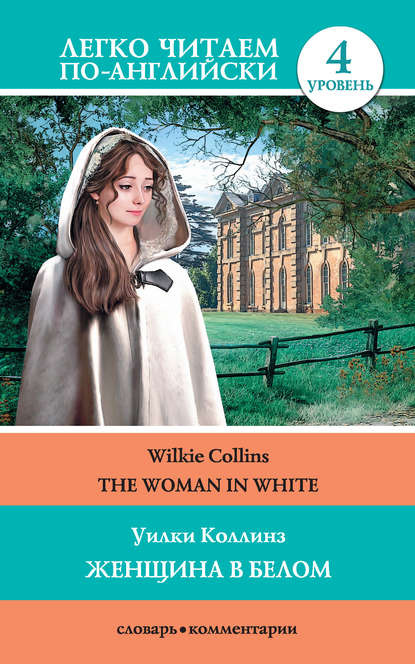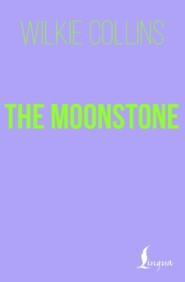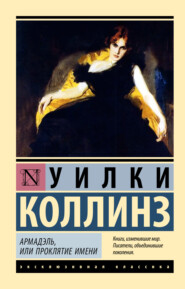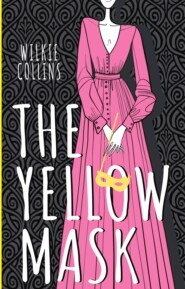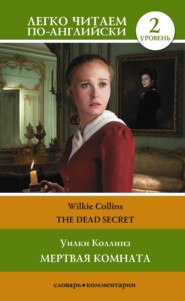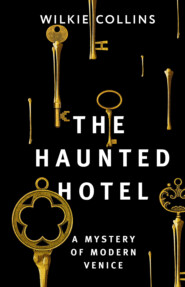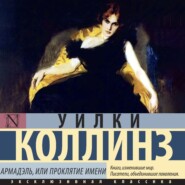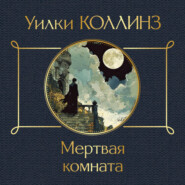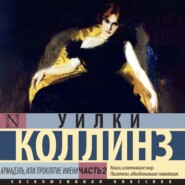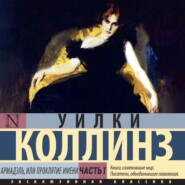По всем вопросам обращайтесь на: info@litportal.ru
(©) 2003-2025.
✖
The Woman in White / Женщина в белом
Настройки чтения
Размер шрифта
Высота строк
Поля
* * *
Miss Halcombe and I kept our secret. I enjoyed Marian’s company very much and I admired and respected her greatly. But feelings of a different kind were awakening within me for Laura.
* * *
The days passed on, the weeks passed on, and every day Laura and I were growing closer. As I was teaching how to hold her pencil to draw, my hand would nearly touch her hand or my cheek would touch her cheek. At those moments, I was breathing the perfume of her hair, and the warm fragrance of her breath. In the evenings after dinner we would light the tall candles in the sitting room and Laura would play the piano. I loved to sit and listen to the beautiful music while darkness fell outside.
I loved her. Yes, the truth was that I was falling deeply in love with Laura. I tried hard to keep my feelings hidden, but I suspected that Marian had guessed.
The days passed, the weeks passed; it was approaching the third month of my stay in Cumberland. We had parted one night as usual. Laura! No word had fallen from my lips, at that time or at any time before it, that could betray me. But when we met again in the morning, a change had come over her[26 - a change had come over her – с ней произошла перемена] – a change that told me all.
There was a coldness in her hand, there was an unnatural immobility in her face, there was in all her movements the mute expression of constant fear. The change in Miss Fairlie was reflected in her half-sister. A week elapsed, leaving us all three still in this position of secret constraint towards one another. My situation was becoming intolerable.
From this position of helplessness I was rescued by Miss Halcombe. Her lips told me the bitter, the necessary, the unexpected truth.
It was on a Thursday in the week, and nearly at the end of the third month of my living in Cumberland.
In the morning, when I went down into the breakfast-room at the usual hour, Miss Halcombe, for the first time since I had known her, was absent from her customary place at the table.
Miss Fairlie was out on the lawn. She bowed to me, but did not come in. She waited on the lawn, and I waited in the breakfast-room, till Miss Halcombe came in.
In a few minutes Miss Halcombe entered. She made her apologies for being late rather absently.
Our morning meal was short and silent. Miss Halcombe, after once or twice hesitating and checking herself, spoke at last.
“I have seen your uncle this morning, Laura,” she said. “He confirms what I told you. Monday is the day – not Tuesday.[27 - Monday is the day – not Tuesday. – Это будет в понедельник, не во вторник.]”
Miss Fairlie looked down at the table beneath her. Her fingers moved nervously among the crumbs that were scattered on the cloth. Her lips themselves trembled visibly.
Miss Fairlie left the room. The kind sorrowful blue eyes looked at me, for a moment, with the sadness of a coming and a long farewell.
I turned towards the garden when the door had closed on her.[28 - the door had closed on her – дверь за ней закрылась] Miss Halcombe was standing with her hat in her hand, and her shawl over her arm, by the large window that led out to the lawn, and was looking at me attentively.
“I want to say a word to you in private, Mr. Hartright. Get your hat and come out into the garden. We are not likely to be disturbed there[29 - we are not likely to be disturbed there – там нас никто не потревожит] at this hour in the morning.”
We were walking across the garden when the gardener passed with a letter in his hand. Marian stopped him.
“Is that letter for me?” she asked.
“No, it’s for Miss Laura,” answered the man, holding out the letter as he spoke. Marian took it from him and looked at the address.
“A strange handwriting,” she said to herself. “Where did you get this?” she continued, addressing the gardener.
“Well, miss,” said the lad, “I just got it from a woman.”
“What woman?”
“An old woman, miss.”
“Oh, an old woman. Any one you knew?”
“No, I have never met her before.”
“Which way did she go?”
“That gate,” said the under-gardener, turning towards the south.
“Curious,” said Miss Halcombe; handing the letter back to the lad, “take it to the house, and give it to one of the servants. And now, Mr. Hartright, if you have no objection, let us walk this way.”
She led me across the lawn, along the same path by which I had followed her on the day after my arrival at Limmeridge. She then brought me to the summer house – the same summer house where I had first seen Laura. We went inside and sat down. I waited, wondering what she would say.
“What I have to say to you I can say here.”
With those words she entered the summer-house, took one of the chairs at the little round table inside, and signed to me to take the other.
“Mr. Hartright,” she said, “As your friend, I am going to tell you, at once, that I have discovered your secret – without help or hint, mind, from any one else. Mr. Hartright, I know that you’re in love with Laura. I don’t even blame you and you’ve done nothing wrong. Shake hands – I have given you pain; I am going to give you more, but there is no help for it – shake hands with your friend, Marian Halcombe, first.”
I tried to look at her when she took my hand, but my eyes were dim. I tried to thank her, but my voice failed me.
“Listen to me,” she said. “There’s something I must tell you – something which will cause you great pain. You must leave Limmeridge House, Mr. Hartright, before more harm is done. It is my duty to say that to you.”
I felt terribly saddened by her words.
“I know I’m only a poor art teacher,” I began.
“You must leave us, not because you are a teacher of drawing.”
She waited a moment, turned her face full on me, and reaching across the table, laid her hand firmly on my arm.
“Not because you are a teacher of drawing,” she repeated, “but because Laura Fairlie is engaged to be married. Her future husband is coming here on Monday with his lawyer. Our family lawyer, Mr. Gilmore, is coming here too. The two lawyers are going to draw up the marriage settlement between Laura and her husband. Once they have arranged this, a date for the wedding can be fixed.”
The last word went like a bullet to my heart. I never moved and never spoke. Hopes! Betrothed, or not betrothed, she was equally far from me. Would other men have remembered that in my place? Not if they had loved her as I did.
The pang passed, and nothing but the dull numbing pain of it remained. I felt Miss Halcombe’s hand again, tightening its hold on my arm – I raised my head and looked at her. Her large black eyes were rooted on me, watching the white change on my face, which I felt, and which she saw.
“Crush it![30 - Crush it! – Покончите с этим!]” she said. “Here, where you first saw her, crush it! Don’t shrink under it like a woman. Tear it out; trample it under foot like a man! Are you yourself again?[31 - Are you yourself again? – Вы пришли в себя?]”
“Enough myself, Miss Halcombe, to ask your pardon and hers. Enough myself to be guided by your advice, and to prove my gratitude in that way, if I can prove it.”
“It is an engagement of honour, not of love; her father sanctioned it on his deathbed, two years ago. Till you came here she was in the position of hundreds of other women, who marry men without love, and who learn to love them (when they don’t learn to hate!) after marriage, instead of before. Your absence and time will help us all three.”
“Let me go today,” I said bitterly. “The sooner the better.[32 - The sooner the better. – Чем раньше, тем лучше.] But what reason shall I give to Mr Fairlie as to why I’m going?”
“No, not today,” she replied. “You must wait till tomorrow to explain tell Mr. Fairlie the sudden change in your plans. Wait until the post arrives tomorrow. Then tell Mr Fairlie you’ve received a letter from London and that you have to return there at once on urgent business.”
I had just agreed to this plan when we heard footsteps. It was Laura’s maid.
“Oh, Miss Marian,” said the girl. “Please can you come quickly to the house? Miss Laura is very upset by a letter she received this morning.”
Miss Halcombe and I kept our secret. I enjoyed Marian’s company very much and I admired and respected her greatly. But feelings of a different kind were awakening within me for Laura.
* * *
The days passed on, the weeks passed on, and every day Laura and I were growing closer. As I was teaching how to hold her pencil to draw, my hand would nearly touch her hand or my cheek would touch her cheek. At those moments, I was breathing the perfume of her hair, and the warm fragrance of her breath. In the evenings after dinner we would light the tall candles in the sitting room and Laura would play the piano. I loved to sit and listen to the beautiful music while darkness fell outside.
I loved her. Yes, the truth was that I was falling deeply in love with Laura. I tried hard to keep my feelings hidden, but I suspected that Marian had guessed.
The days passed, the weeks passed; it was approaching the third month of my stay in Cumberland. We had parted one night as usual. Laura! No word had fallen from my lips, at that time or at any time before it, that could betray me. But when we met again in the morning, a change had come over her[26 - a change had come over her – с ней произошла перемена] – a change that told me all.
There was a coldness in her hand, there was an unnatural immobility in her face, there was in all her movements the mute expression of constant fear. The change in Miss Fairlie was reflected in her half-sister. A week elapsed, leaving us all three still in this position of secret constraint towards one another. My situation was becoming intolerable.
From this position of helplessness I was rescued by Miss Halcombe. Her lips told me the bitter, the necessary, the unexpected truth.
It was on a Thursday in the week, and nearly at the end of the third month of my living in Cumberland.
In the morning, when I went down into the breakfast-room at the usual hour, Miss Halcombe, for the first time since I had known her, was absent from her customary place at the table.
Miss Fairlie was out on the lawn. She bowed to me, but did not come in. She waited on the lawn, and I waited in the breakfast-room, till Miss Halcombe came in.
In a few minutes Miss Halcombe entered. She made her apologies for being late rather absently.
Our morning meal was short and silent. Miss Halcombe, after once or twice hesitating and checking herself, spoke at last.
“I have seen your uncle this morning, Laura,” she said. “He confirms what I told you. Monday is the day – not Tuesday.[27 - Monday is the day – not Tuesday. – Это будет в понедельник, не во вторник.]”
Miss Fairlie looked down at the table beneath her. Her fingers moved nervously among the crumbs that were scattered on the cloth. Her lips themselves trembled visibly.
Miss Fairlie left the room. The kind sorrowful blue eyes looked at me, for a moment, with the sadness of a coming and a long farewell.
I turned towards the garden when the door had closed on her.[28 - the door had closed on her – дверь за ней закрылась] Miss Halcombe was standing with her hat in her hand, and her shawl over her arm, by the large window that led out to the lawn, and was looking at me attentively.
“I want to say a word to you in private, Mr. Hartright. Get your hat and come out into the garden. We are not likely to be disturbed there[29 - we are not likely to be disturbed there – там нас никто не потревожит] at this hour in the morning.”
We were walking across the garden when the gardener passed with a letter in his hand. Marian stopped him.
“Is that letter for me?” she asked.
“No, it’s for Miss Laura,” answered the man, holding out the letter as he spoke. Marian took it from him and looked at the address.
“A strange handwriting,” she said to herself. “Where did you get this?” she continued, addressing the gardener.
“Well, miss,” said the lad, “I just got it from a woman.”
“What woman?”
“An old woman, miss.”
“Oh, an old woman. Any one you knew?”
“No, I have never met her before.”
“Which way did she go?”
“That gate,” said the under-gardener, turning towards the south.
“Curious,” said Miss Halcombe; handing the letter back to the lad, “take it to the house, and give it to one of the servants. And now, Mr. Hartright, if you have no objection, let us walk this way.”
She led me across the lawn, along the same path by which I had followed her on the day after my arrival at Limmeridge. She then brought me to the summer house – the same summer house where I had first seen Laura. We went inside and sat down. I waited, wondering what she would say.
“What I have to say to you I can say here.”
With those words she entered the summer-house, took one of the chairs at the little round table inside, and signed to me to take the other.
“Mr. Hartright,” she said, “As your friend, I am going to tell you, at once, that I have discovered your secret – without help or hint, mind, from any one else. Mr. Hartright, I know that you’re in love with Laura. I don’t even blame you and you’ve done nothing wrong. Shake hands – I have given you pain; I am going to give you more, but there is no help for it – shake hands with your friend, Marian Halcombe, first.”
I tried to look at her when she took my hand, but my eyes were dim. I tried to thank her, but my voice failed me.
“Listen to me,” she said. “There’s something I must tell you – something which will cause you great pain. You must leave Limmeridge House, Mr. Hartright, before more harm is done. It is my duty to say that to you.”
I felt terribly saddened by her words.
“I know I’m only a poor art teacher,” I began.
“You must leave us, not because you are a teacher of drawing.”
She waited a moment, turned her face full on me, and reaching across the table, laid her hand firmly on my arm.
“Not because you are a teacher of drawing,” she repeated, “but because Laura Fairlie is engaged to be married. Her future husband is coming here on Monday with his lawyer. Our family lawyer, Mr. Gilmore, is coming here too. The two lawyers are going to draw up the marriage settlement between Laura and her husband. Once they have arranged this, a date for the wedding can be fixed.”
The last word went like a bullet to my heart. I never moved and never spoke. Hopes! Betrothed, or not betrothed, she was equally far from me. Would other men have remembered that in my place? Not if they had loved her as I did.
The pang passed, and nothing but the dull numbing pain of it remained. I felt Miss Halcombe’s hand again, tightening its hold on my arm – I raised my head and looked at her. Her large black eyes were rooted on me, watching the white change on my face, which I felt, and which she saw.
“Crush it![30 - Crush it! – Покончите с этим!]” she said. “Here, where you first saw her, crush it! Don’t shrink under it like a woman. Tear it out; trample it under foot like a man! Are you yourself again?[31 - Are you yourself again? – Вы пришли в себя?]”
“Enough myself, Miss Halcombe, to ask your pardon and hers. Enough myself to be guided by your advice, and to prove my gratitude in that way, if I can prove it.”
“It is an engagement of honour, not of love; her father sanctioned it on his deathbed, two years ago. Till you came here she was in the position of hundreds of other women, who marry men without love, and who learn to love them (when they don’t learn to hate!) after marriage, instead of before. Your absence and time will help us all three.”
“Let me go today,” I said bitterly. “The sooner the better.[32 - The sooner the better. – Чем раньше, тем лучше.] But what reason shall I give to Mr Fairlie as to why I’m going?”
“No, not today,” she replied. “You must wait till tomorrow to explain tell Mr. Fairlie the sudden change in your plans. Wait until the post arrives tomorrow. Then tell Mr Fairlie you’ve received a letter from London and that you have to return there at once on urgent business.”
I had just agreed to this plan when we heard footsteps. It was Laura’s maid.
“Oh, Miss Marian,” said the girl. “Please can you come quickly to the house? Miss Laura is very upset by a letter she received this morning.”





